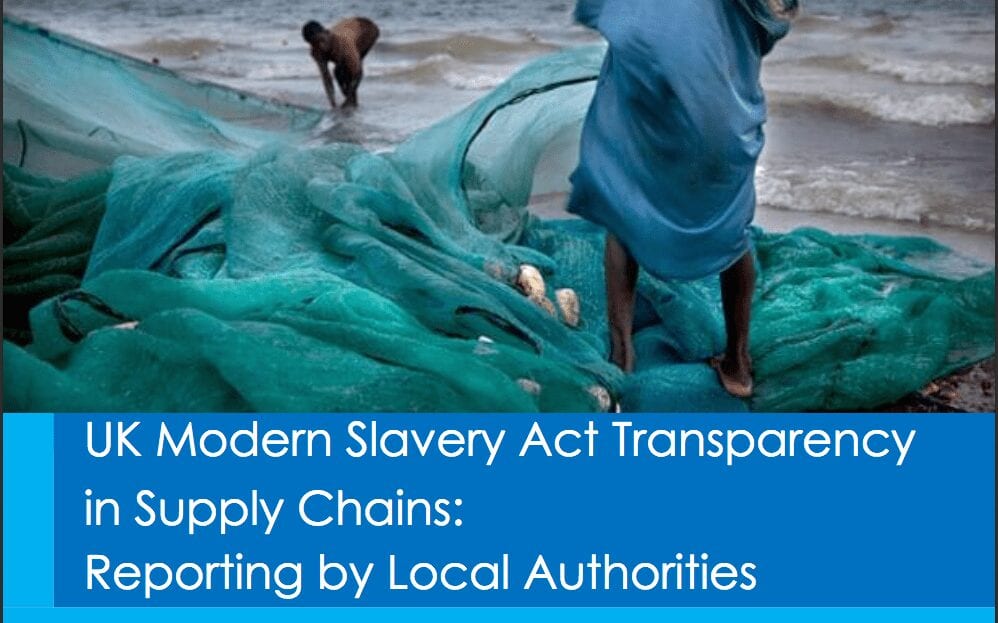
UK Modern Slavery Act Transparency in Supply Chains:Reporting by Local Authorities
This is a fourth report in the BHRE Research Series, and the second to address transparency reporting by local authorities on their efforts to combat modern slavery and human trafficking in their supply chains. The first research report, UK Modern Slavery Act Transparency in Supply Chains: Reporting by Local Authorities,1qualitatively analysed statements produced by local authorities since the Transparency in Supply Chains Provision (TISC) of the UK Modern Slavery Act (2015) (Section 54), entered into force on 29thOctober 2015. Our first research report on local authoritiescovered the reporting periods corresponding to two financial years: 2015/2016 and 2016/2017. The current report analyses the efforts oflocal authorities to respond to the new responsibilities towards their supply chain and their progress in transparency the past years. This research report covers theMSAreporting periods corresponding to the financial years 2017/2018, 2018/2019 and, the most recent, 2019/2020. The number of Councils which have published a modern slavery statement (or at least attempted to) has increased exponentially in these years –with 132local authorities identified as having some form of statement out of 404 in the entirety of the UK, whether individual or jointly written.
As it is well known by now,the TISC provision of the MSA requires commercial entities to annually report onall actions taken to identify, prevent and mitigate modern slavery in their supply chains. The aim of the provision is to encourage commercial entities to investigate their supply chain and the effects of their activities upon others,and to communicate this knowledge internally and externally. Only commercial entities with a total annual turnover over £36 million have been required to publish their annual Slavery and Human Trafficking Statement (the Statement). In principle, local authorities do not fall within the category of entities obliged to report under the MSA.Nevertheless, local authorities have demonstrated ethical leadership by voluntarily publishing statements, as our first research report showed. This will all change soon when the government implements its commitments following its response to the transparency in supply chain consultation in September 2020. On 22ndSeptember the UK Home Office announced that the government is introducing new measures to strengthen the MSA by, among others, requiring public bodies which have a budget of £36 million or more, including local authorities in England and Wales, to regularly report on the steps they have taken to prevent modern slavery in their supply chains.
Read the report here.
